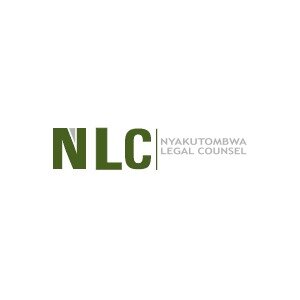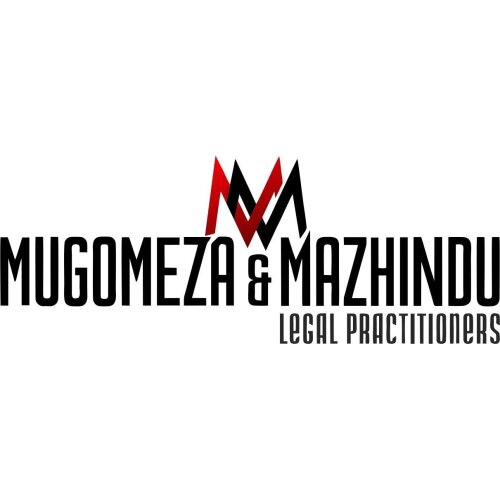Best Employer Lawyers in Harare
Share your needs with us, get contacted by law firms.
Free. Takes 2 min.
List of the best lawyers in Harare, Zimbabwe
About Employer Law in Harare, Zimbabwe
Employment law in Harare, Zimbabwe, is primarily governed by the Labour Act, as well as other statutory instruments and common law principles. These laws aim to regulate the relationship between employers and employees, focusing on the rights and obligations of both parties. The legal framework covers various aspects including contracts of employment, conditions of work, termination of employment, and rights during employment. The Ministry of Public Service, Labour, and Social Welfare is the primary government body responsible for labor issues, ensuring compliance and resolving disputes.
Why You May Need a Lawyer
There are several situations where individuals or businesses may require legal assistance in employment matters. These include understanding contractual obligations, addressing unfair dismissal cases, resolving workplace disputes, and ensuring compliance with Zimbabwean labor laws. Employers may seek legal help to draft employment contracts, navigate workplace health and safety issues, and manage collective bargaining processes. Employees might need legal counsel when facing issues such as discrimination, wrongful termination, or disputes over wages and benefits.
Local Laws Overview
The Labour Act is the principal legislation governing labor and employment relations in Zimbabwe, including Harare. Key aspects involve regulations on employment contracts, the minimum wage, working hours, leave entitlements, termination procedures, and dispute resolution mechanisms. The act also establishes the Labour Court to handle employment disputes. Specific attention is given to ensuring fair labor practices, protecting against discrimination, and safeguarding employees' rights to join trade unions and engage in collective bargaining. Amendments and statutory instruments periodically update the Act to reflect changing socio-economic conditions.
Frequently Asked Questions
What is the minimum wage in Harare, Zimbabwe?
The minimum wage varies across different sectors and is periodically reviewed by the government to align with economic conditions. It is essential to refer to the latest statutory instrument or consult with labor authorities for up-to-date figures.
How is employment termination regulated?
Termination of employment must comply with the Labour Act, requiring just cause and adherence to proper procedures, including notice periods and, in some cases, severance pay. Employees can dispute unfair terminations at the Labour Court.
What rights do employees have regarding leave?
Employees are entitled to various types of leave, including annual leave, sick leave, and maternity leave, as prescribed by the Labour Act. Specific entitlements depend on the duration and nature of the employment contract.
Are there specific laws regarding occupational health and safety?
Yes, employers are required to provide a safe working environment, comply with health and safety regulations, and are subject to inspections by the relevant authorities to enforce these standards.
What constitutes unfair dismissal?
Unfair dismissal occurs when an employee's contract is terminated without just cause or due process. Common grounds for unfair dismissal claims include lack of proper notice, discrimination, or retaliation for union activities.
Can employees join a trade union?
Yes, employees have the legal right to join trade unions and participate in union activities for collective bargaining and protection of their employment rights.
What is the role of the Labour Court?
The Labour Court adjudicates disputes between employers and employees, including unfair dismissal cases, wage disputes, and grievances related to employment conditions.
How are disputes typically resolved?
Disputes often go through internal resolution processes, conciliation at the Labour Office, and, if unresolved, litigation at the Labour Court. Arbitration is also an option for certain cases.
What documents are essential for employment?
Key documents include a written employment contract outlining terms, conditions, and expectations, as well as pay slips and records of leave taken. These documents can be crucial in employment disputes.
How can one ensure compliance with labor laws?
Employers should stay updated on legislative changes, conduct regular audits of employment practices, provide training, and seek legal advice when necessary to ensure full compliance with employment laws.
Additional Resources
Individuals seeking further information or assistance can reach out to the following resources:
- Ministry of Public Service, Labour, and Social Welfare - for official guidelines and employment standards.
- The Labour Court - for dispute resolution and legal advice regarding labor issues.
- Zimbabwe Congress of Trade Unions (ZCTU) - for support related to trade union activities and rights.
- Legal practitioners specializing in employment law - for personalized legal advice and services.
Next Steps
If you require legal assistance in employment matters, the following steps can help guide you:
- Document all relevant details and gather necessary evidence related to your employment issue.
- Contact a qualified legal practitioner specializing in employment law for an initial consultation.
- Engage with government bodies, such as the Labour Office, if seeking intervention or guidance.
- Consider mediation or arbitration for dispute resolution before pursuing litigation.
Starting with professional advice can help you navigate the complexities of employment law effectively and efficiently.
Lawzana helps you find the best lawyers and law firms in Harare through a curated and pre-screened list of qualified legal professionals. Our platform offers rankings and detailed profiles of attorneys and law firms, allowing you to compare based on practice areas, including Employer, experience, and client feedback.
Each profile includes a description of the firm's areas of practice, client reviews, team members and partners, year of establishment, spoken languages, office locations, contact information, social media presence, and any published articles or resources. Most firms on our platform speak English and are experienced in both local and international legal matters.
Get a quote from top-rated law firms in Harare, Zimbabwe — quickly, securely, and without unnecessary hassle.
Disclaimer:
The information provided on this page is for general informational purposes only and does not constitute legal advice. While we strive to ensure the accuracy and relevance of the content, legal information may change over time, and interpretations of the law can vary. You should always consult with a qualified legal professional for advice specific to your situation.
We disclaim all liability for actions taken or not taken based on the content of this page. If you believe any information is incorrect or outdated, please contact us, and we will review and update it where appropriate.
















